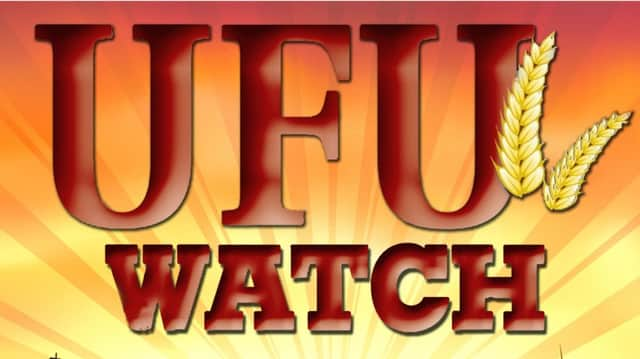Live exports in focus


The Bill seeks to ban the export of livestock for slaughter or further production outside the UK. While there have been some exemptions proposed for Northern Ireland, these exemptions do not go far enough and in any case the entire concept of the legislative proposals are something which the UFU is completely opposed too.
It is not really any surprise that these legislative proposals have been made by a Conservative MP. Prior to the last election the Conservative manifesto stated that in any new government they would seek to “take early steps to control the export of live farm animals for slaughter.” This has been re-affirmed in comments made more recently by government ministers such as Michael Gove and George Eustice. While the proposals in the Private Members’ Bill and in the Conservative party manifesto are different, it does show a concerning direction of travel amongst senior Conservative party politicians, much of which is as a result of pressure from animal welfare activists based in the south of England.
Advertisement
Hide AdAdvertisement
Hide AdWhile members of the European Union, our industry has always been protected from this type of legislative proposal because of the principles of free trade which operate in the EU. As long as exporters were complying with the stringent regulatory requirements the trade was permitted and supported. Now that we are leaving the EU some see the potential to introduce UK legislation which can ban this trade, but this will be entirely dependent on the future trading arrangements and regulatory alignment that the UK has with the EU.
Generally speaking the live export trade is relatively small as a proportion of the industry in Great Britain but in Northern Ireland the live export of animals for slaughter and further production plays a pivotal role. Average figures for the past five years show that almost 60,000 cattle and 485,000 sheep are exported live from Northern Ireland to a variety of destinations within Great Britain, the Republic of Ireland and also continental Europe.
While the threat of WTO trade tariffs post Brexit could put an end to the live export trade to Europe on its own, the additional threat of new UK legislation banning live exports is massively concerning, particularly for the beef and sheep sector. Northern Ireland is one of the most productive livestock regions in Europe and we are several times self-sufficient in these commodities. We need the freedom to be able to market our livestock both on the hook and off the hoof to maintain competition and economic viability within what has traditionally been a low margin sector.
As previously highlighted, the ‘Live Animal Exports’ Bill proposes an exemption for Northern Ireland that any animal exported to the Republic of Ireland should be slaughtered within six weeks. But regardless of this proposed exemption in reality this would only act as a trade barrier for animals going for further production at any time when it is economically best to do so. The Bill would also effectively put an end to the export of calves to continental Europe for further production, many of which currently travel to Spain.
Advertisement
Hide AdAdvertisement
Hide AdFrom a political perspective all of this is very concerning but taking a positive angle on the whole debate there are strong grounds to help oppose the proposed legislation. A great deal of research has already been done by Teagasc in the Republic of Ireland on the impact of live exporting cattle on animal welfare. Crucially this research has shown that where cattle are transported in accordance with EU legal requirements there is no adverse impact on animal welfare or the performance of the animals. Additionally, there is recognition within DAERA that live exporters of calves to continental Europe have very good compliance levels with the legal requirements and this is supported through DAERA’s collaboration with the authorities in France, Spain and the Republic of Ireland. These are the messages which are needed to get across to our political leaders in conjunction with the economic arguments about how important the live trade is. Without the option to export our livestock on the hoof, fair competition for livestock would be severely hindered and this would unquestionably lead to a reduction in prices farmers receive at the farmgate. In a region where agri-food plays such a major role in the economy, a ban on live exports would be contrary to all the efforts to grow a more sustainable industry. These adverse impacts would not just hit the economy, but also the stewardship of the rural landscape and also the rural communities who rely so greatly on a healthy agri-food sector.